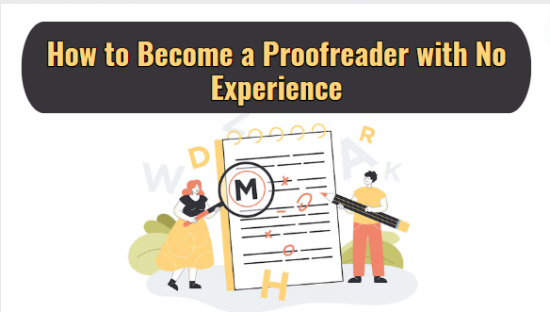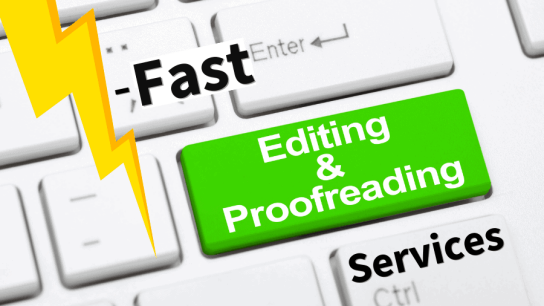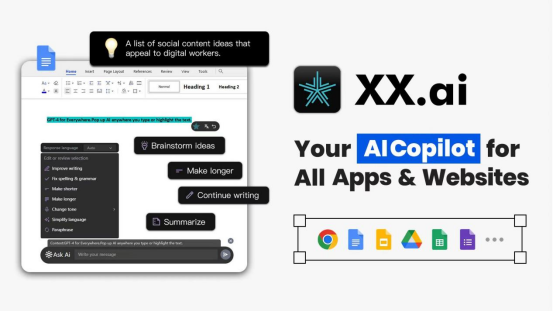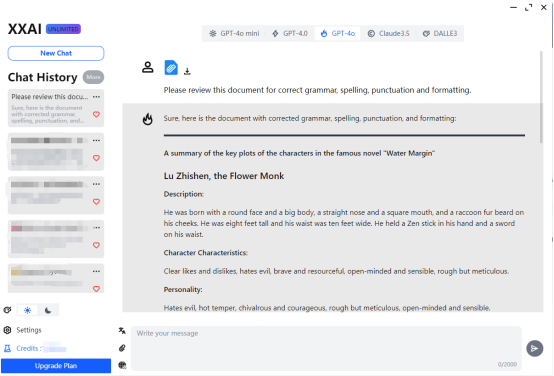如何在没有经验的情况下完成论文校对

完成了学术生涯中的一个重要任务?渴望完美提交您的论文?最好的方法就是进行拼写检查。虽然许多人建议自行校对,但这项任务并不像看起来那么简单。如果您想探索校对领域的职业机会,情况可能会变得非常复杂。本文将揭开校对的神秘面纱,教您如何有效校对,并帮助您决定这一领域是否适合您。

什么是校对员?
校对员的职责在编辑过程的最后阶段。他们必须仔细检查书面内容,以识别语法、拼写、标点和格式错误,确保文本的准确性。如果您热爱阅读并且对语言有很强的掌握能力,校对可能是适合您的职业。

校对员利用敏锐的观察力和计算机技能来发现打印错误、风格或格式的不一致以及其他被忽视的问题。具有英语、传播学或新闻学背景可以提高您的竞争力,而获得校对证书则可以进一步验证您在该领域的技能。
要成为一名优秀的校对员,需要不断提高技能。熟悉不同的风格指南,定期练习,并使用互联网资源学习更多知识。自由职业提供了一种灵活的方式来积累经验并建立作品集,而在出版公司或报纸的固定职位则提供了稳定性和成长潜力。
校对是否适合您?
- 热爱阅读: 校对需要广泛阅读和反复阅读各种材料。如果您从书面内容中获得满足感并且对语言充满热情,这可能是适合您的职业。
- 精通英语: 英语的扎实技能对于识别和纠正书面文本中的错误至关重要。如果您能够发现微妙的语法差异、拼写错误和标点符号的误用,您可能适合校对。
- 注重细节: 校对需要对细节的极大关注,以发现文本中最小的错误或不一致。如果您喜欢检查文本的准确性,校对可能是理想的选择。

- 计算机技能: 精通计算机和文字处理软件对于校对员来说至关重要,因为他们经常依赖专业工具和软件来高效编辑文档。愿意学习新技术并熟悉数字平台将对您大有裨益。
- 时间管理: 校对员必须有效管理时间,以平衡多个项目并遵守严格的截止日期。如果您擅长优先处理任务,保持组织性并在压力下高效工作,您将在快节奏的校对环境中蓬勃发展。

- 自我控制: 校对员在识别和纠正书面内容中的错误时,必须保持自我控制,以保持作者的声音并尊重客户的期望。如果您能够提供建设性的反馈,同时保持客观和专业,您将成为一名出色的校对员。
定制您的校对服务
考虑从事校对职业可以带来职业发展和专业化,尤其是通过自由职业机会。作为校对员,您可以定制服务以满足不同领域的需求,包括企业、个人和特定行业的领域,每个领域都提供独特的合作机会。对于那些对企业合作感兴趣的人来说,选择成为内部校对员或为企业客户提供自由职业服务可能会带来可观的收益。内部校对员通常与公司紧密合作,确保书面内容准确且专业。相反,自由职业者可以灵活地与多家公司合作,按项目提供校对服务。

对于那些寻求更多工作机会的人,他们可以探索与博客作者、新闻出版物、作家和其他内容创作者的合作。校对博客文章、新闻稿、手稿和其他书面材料,使自由职业者能够接触到多样化的内容,同时在各个领域磨练自己的技能。要在自由职业领域取得最大成功,获得行业专业知识和工作经验至关重要。客户通常优先考虑根据其特定需求量身定制的专业服务,因此相关经验是宝贵的资产。专注于对校对服务需求旺盛的利基市场或行业,可以增强您作为自由职业者的市场竞争力。
风格指南的重要性
了解不同的写作风格对于有效的沟通至关重要,因为每种风格都具有独特的目的并吸引不同的受众。主要有四种写作风格:说明性、描述性、劝说性和叙述性。以下是对每种风格的详细解释,以及在写作中注意它们的重要性:
- 说明性写作: 说明性写作的目的是向读者解释概念或传递信息。在这种风格中,作者专注于呈现事实、统计数据或证据,而不包括个人意见。它常见于教科书、指南和技术文档中,强调清晰性和客观性,以确保读者能够理解主题,而不会受到个人偏见或解释的影响。
- 描述性写作: 描述性写作旨在通过丰富的语言和感官细节,在读者的脑海中创造生动的图像并唤起感官体验。这种风格用于描绘详细的场景,常见于诗歌、日记条目和自然描述中。通过吸引感官,描述性写作在情感层面上吸引读者,使他们沉浸其中,并与文本建立深厚的联系。
- 劝说性写作: 劝说性写作的目的是改变读者的观点或信念。作者使用修辞、逻辑和劝说技巧来说服读者相信论点的有效性。这种风格常见于求职信、广告和意见文章中,作者通过提出令人信服的论点来影响读者的想法或行为。
- 叙述性写作: 叙述性写作以讲故事为中心,构建一个完整的故事,包括角色、背景和情节。这种风格在小说、短篇故事和口述历史中很受欢迎,旨在娱乐和吸引观众。通过生动的叙述,读者被引导进入一个富有想象力的世界。
AI校对助手 - XXAI
XXAI是一款先进的AI写作助手,完美集成到您的桌面环境中,提供一套全面的工具,以增强写作、沟通和生产力。由GPT-4、Claude 3和DALL-E 3驱动,XXAI超越了基于网络的服务限制,为各种写作需求及其他提供了全能的AI副驾驶。它提供的一系列工具始终超出预期。

其亮点之一是应用内集成的高级AI拼写检查功能。这款由AI驱动的校对工具通过从四个关键维度详细分析文本来提升写作体验:清晰度、传达性、正确性和参与度。
XXAI帮助用户选择适合文档目的和受众的格式和结构,确保传达性。通过简化复杂的句子,保持段落中心思想,减少模棱两可,它确保了清晰度。此外,该工具通过仔细识别和纠正错误来提高正确性,确保拼写和语法的准确性。

用户可以通过设置与文档特征相符的特定指示来自定义他们的校对体验,确保他们的写作得到高效润色,并根据需要进行调整。
常见问题
1. 校对工作的平台有哪些?
- Upwork: 一个受欢迎的网站,用于聘请自由职业者从事各种工作,包括校对。
- Fiverr: 一个提供校对等服务的网站,用户可以设置自己的服务价格。
- Freelancer: 一个适合自由职业者寻找工作的理想平台,您可以在此搜索并申请校对工作。
2. 如何在没有经验的情况下成为校对员?
通过练习和在线课程提高校对技能。寻找自由职业平台上的入门级机会,或通过实习获得实践经验。建立强大的作品集也有助于向潜在客户或雇主展示您的能力。
3. 校对员面临的常见挑战及如何克服?
校对员通常面临的挑战包括应对紧迫的截止日期、处理反馈以及同时管理多个项目。这些障碍可以通过有效的时间管理、与客户的清晰沟通以及持续学习和改进来克服。
维护您的声誉: 校对的隐形力量
校对职业至关重要,尤其是因为许多其他关键职业依赖于熟练的校对员来维护他们的声誉和信誉。如果您正在考虑进入这一领域,这是一个值得深思的方向。然而,随着人工智能(AI)的快速进步,在深入研究这一职业之前,仔细权衡您的选择至关重要。
以XXAI为例,它提供了一整套工具来增强写作、沟通和生产力。它提供流畅的写作体验,最大限度地减少错误并确保无懈可击的准确性。通过利用AI技术,XXAI为用户提供了一种高效且可靠的解决方案来完善其书面内容。准备好以精准和自信提升您的写作吗?立即下载XXAI吧!